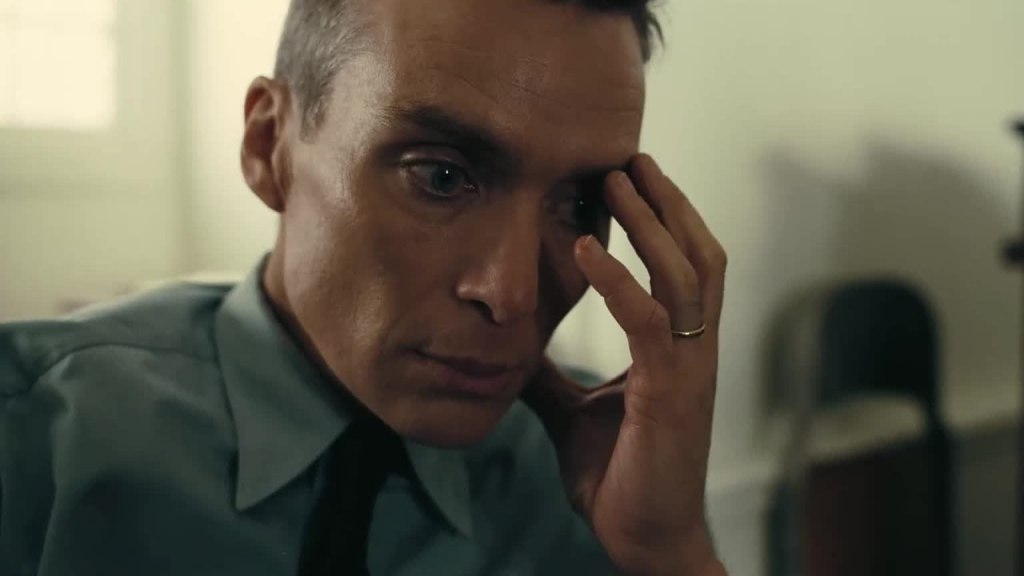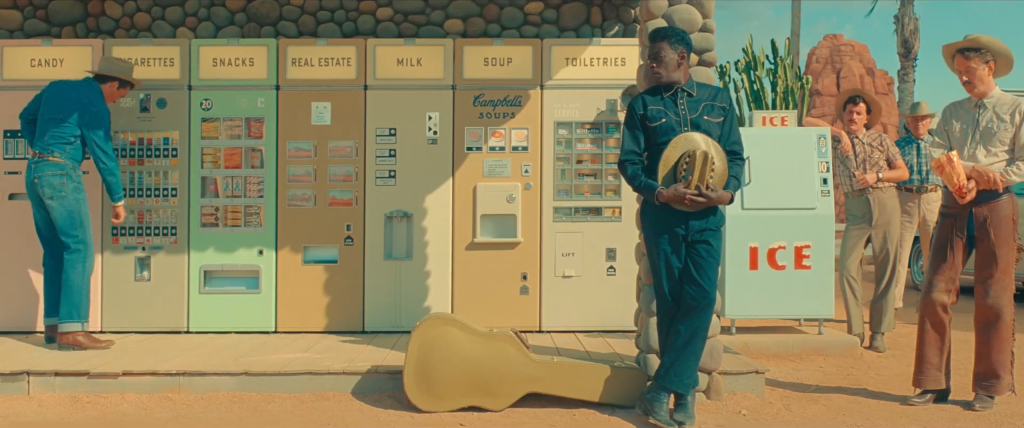
If I were to categorize Wes Anderson, I would place him in a similar camp to Tim Burton. They both have a distinct and instantly recognizable vision for the bizarre worlds in which their films take place, and they both tend to work with an abundance of the same actors. But while Burton’s recent contributions have been marked by a nearly linear decline in quality and coherence, Anderson’s films have taken a far more regrettable route… They have become utterly forgettable. While I have seen [and modestly enjoyed] every one of Wes Anderson’s films since Rushmore, I can scarcely recall a single moment from any of them since 2001’s The Royal Tenenbaums. While Anderson’s quirk and theatricality has remained as distinctive as ever, his overall vision has somehow become completely unremarkable.
Until now.
Moonrise Kingdom is a triumphant return to form for Anderson (along with co-writer Roman Coppola), meticulously crafting a rich and memorable world in the fictitious island of New Penzance off the Atlantic Coast. The story kicks right into gear as a young Khaki Scout, Sam Shakusky (Jared Gilman) leaves a hand-scrawled letter of resignation in his jamboree tent and strikes off into the wilderness in a purloined canoe. At the very same moment, his preteen sweetheart Suzy Bishop (Kara Hayward) runs away from home on the other end of the island, leaving her parents, Walt (Bill Murray) and Laura (Frances McDormand), at a loss to explain her disappearance. An immediate search begins as both the local police Captain Sharp (Bruce Willis) and Khaki Scout Master Randy Ward (Edward Norton) both rally their respective posses to search for the wayward couple.
The film takes a bit of time to find its footing, owing to the bizarrely precocious dialogue of its young, first-time leads. Their initial line readings have an almost wooden theatricality, with drawn-out banter so improbably delivered that it seems like Shakespeare in the Park as read from a teleprompter. But as their chaste and cordial romp gets into full swing, the two actors somehow find an accord. They become a fascinating romantic screen presence, even as the overall plot starts to take on a flavor none-too-dissimilar from the first Rambo film. An early “showdown” ensues between the young couple atop a hillside and some unrelenting Scouts who have happened upon them. Without grownup supervision, the Scouts are tenacious in their pursuit, armed with absurdly dangerous homemade melee weapons, an archery kit, and a lead Scout primed to charge the young lovers on his dirt bike. It’s all a great deal of fun, but the romance starts to make a bit more sense when viewed through this adversarial lens. These kids are determined to skip ahead to grownup life, bidding farewell to their erstwhile families and making a life for themselves in the wilderness. They are the embodiment of “us against the world”, even if their oppressive world is like something from the mind of Roald Dahl or J.K. Rowling.

In fact, the entire cast plays the film remarkably straight, even as the stakes continue to ramp absurdly upward. An on-screen narrator (Bob Balaban) informs us that a hurricane will strike in three days’ time. In fact, he tells us that this has already happened. By playing the entire film as a historical document, the various perils that befall the characters take on a tense fatalism. As the film goes on, any time a character steps onto a boat or seaplane feels like it might be the last time they’ll ever been seen alive. In this way, Moonrise evokes another much more adult film – Shutter Island. While Suzy will simply be returned to her parents if caught, Sam faces potentially greater peril, as it is revealed early on that he lives in a foster home that will not be welcoming him back, due to his unspecified “emotional problems”. The specter of Social Services (embodied by a hilariously dry Tilda Swinton) hangs over the proceedings at all times, along with all the potential horror of 1960s psychiatric practices. If Sam manages to survive his adventure, his life will get irrevocably worse.
Slightly less interesting are the marital problems of Suzy’s parents. Murray and McDormand are amusing together – a pair of attorneys who sleep in separate beds and speak of little else but their cases – but Murray and Willis, both rivals for the lady’s affections, are the real standouts. They each give their best comedic performances in years, engaging in a relentless duel of nonchalance and quiet resignation. Edward Norton is also brilliantly straight-laced, although the film seems to run out of practical use for him by the final act (not counting a bizarre stunt with Harvey Keitel). Given that Willis’ arc is probably the most underdeveloped in the film, it almost seems like the ending of Norton’s storyline was chopped and given to Willis instead. It was an odd choice, but it did feel just barely earned, as the film gives each character just enough setup to justify their final choices. Except, perhaps, for Jason Schwartzmann, who shows up just long enough to be awesome and underused as Cousin Ben, the obligatory helpful rogue. As an Anderson vet, Schwartzmann is so well-equipped to handle this material that I couldn’t help but want a bit more of him.
This would seem to be as far down the quirky path as Wes Anderson can delve without diminishing returns. Not everything in this film worked – as much as I was enjoying the meticulous opening cinematography of the Bishop home, I found myself rolling my eyes at its more superfluous elements, including Frances McDormand’s rather grating use of a megaphone to call for her children. But once the story got started, I was completely swept up in it. There is so much in this film that I’ll fondly recall, from the ridiculously tall treehouse to the Terabithian splendor of the titular Kingdom. This film is a sweet and nostalgic chronicle of the wondrous worlds that we create in childhood, and even manages to delve into the dire consequences of growing up, without ever losing a bit of its charm.
FilmWonk rating: 8 out of 10





